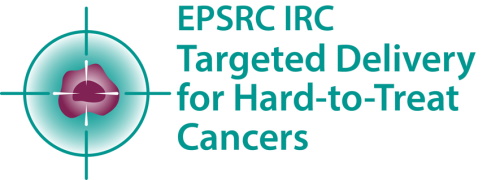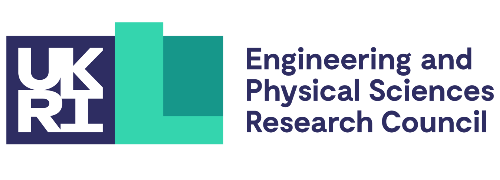
Prof George Malliaras, IRC Director
George Malliaras is the Prince Philip Professor of Technology at the University of Cambridge. He received a PhD from the University of Groningen and did a postdoc at the IBM Almaden Research Center. Before joining Cambridge, he was a faculty member at Ecole des Mines de St. Etienne and at Cornell University, and served as the Director of the Cornell NanoScale Facility. His research has been recognized with awards from the New York Academy of Sciences, the US National Science Foundation, and DuPont. He is a Fellow of the Materials Research Society and of the Royal Society of Chemistry.
Prof. Malliaras leads a group of scientists, engineers and clinicians who study the fundamental processes at the abiotic/biotic interface and develop better tools for healthcare. He is interested in the development and translation of implantable and wearable devices that interface with electrically active tissues, with applications in neurological disorders and brain cancer.
Prof Ryan Mathew
Ryan Mathew is an Associate Professor at the University of Leeds and an Honorary Consultant Neurosurgeon at Leeds Teaching Hospitals. He obtained an MBCHB with Honours and an intercalated BSc with Honours, the latter in Clinical Sciences (Tissue Engineering) research. During his neurosurgical training at Leeds (FRCS (SN) in 2013), he undertook further basic science research (funded by CRUK) and was awarded a PhD based on Glioma Modelling using induced Pluripotent Stem Cells (iPSCs) and Cerebral Organoids. He has spent time as a Visiting Research Collaborator at the Brain Tumour Research Centre at Sickkids in Toronto.
His clinical practice covers the full spectrum of general neurosurgery with a subspecialty interest in brain tumours; in particular gliomas, meningiomas and awake surgery. His basic science research interests focus on developing advanced in vitro and in vivo brain tumour models, studying residual glioma cell populations that are resistant to therapy and fuel recurrence, and developing local therapeutic treatments. He also leads a research portfolio in surgical technologies and devices which encompasses virtual/mixed reality, machine learning for early brain tumour diagnosis and malignant transformation, real-time intra-operative tumour visualisation and histology, in silico trials, and early phase neoadjuvant and repurposing trials. He is the Neurosurgery Lead for the NIHR Surgical MIC, Surgical Technologies Academy Incubator and RCS Leeds Institute of Clinical Trials Research. He is a member of the Academic Committee of the SBNS, BNOS Research Subcommittee and a HoloMedicine Association Founding Member.
Prof Rylie Green
Rylie Green is the Head of Bioengineering at Imperial College London.
In her research, Prof Green has developed a range of innovative materials to address the limitations that hinder the development of next-generation bioelectronic devices. Her focus has been in developing electrode technologies that are stretchable and mediate improved electrical charge transfer with the body, including pioneering living bioelectronics. Prof Green has also developed wearable diagnostic devices and drug delivery systems for localised chemotherapy based on her conductive material technologies. This research has initiated collaborations with Galvani Bioelectronics, Cochlear Ltd and the US Department of Defense. Prof Green is an Associate Editor for APL Bioengineering, Advanced Bionanomedicine and Biomaterials.
Prof Ljiljana Fruk
Ljiljana Fruk is an Associate Professor of Bio-nano Engineering and her research is focused on design of biocompatible hybrid materials for use in catalysis/sustainable manufacturing and nanomedicine, particularly for drug delivery and biosensing. The focus of her research in nanomedicine are bioinspired drug delivery systems for hard-to-treat cancers such as pancreatic cancer and theranostic strategies to screen for and remove aged (senescent) cells. Her group pioneered use of photo-click chemistry for nanomaterial functionalization, and development of organic contrast agents for senescent cells.
Ljiljana studied chemistry at the University of Zagreb, obtained a PhD in bio-spectroscopy from University of Strathclyde, Glasgow (2000-2004), and worked on DNA structuring and enzyme reconstitution as a Humboldt and Marie Curie fellow at the University of Dortmund, Germany (2004-2008). Prior to joining the Department of Chemical Engineering and Biotechnology, she led a research group at Karlsruhe Institute of Technology (Germany, 2009-2014). She is an active science popularizer, art-science curator, and the co-author of the field-establishing Molecular Aesthetics book (MIT Press 2013), and the first textbook on Bio-nanotechnology (Cambridge University Press 2021).
Prof Judy Coulson
Judy Coulson graduated from the University of Salford in Biological and Biochemical Sciences, and the University of London with a PhD in Biochemistry. She was a post-doctoral researcher at Aston and Nottingham Universities, before joining the University of Liverpool as a lecturer in 2001, and receiving the British Association for Cancer Research/AstraZeneca Young Scientist Award in 2003.
Judy is now the non-clinical Deputy Head of Department in Molecular and Clinical Cancer Medicine and the Academic Lead for the Liverpool Chick Egg Facility. She has served on scientific network and grant awarding committees, including currently for Mesothelioma UK. In 2022, Judy was appointed as Deputy Associate Pro Vice Chancellor for Technology, Infrastructure and Environment in the Faculty of Health and Life Sciences, and the Faculty Lead for Equality Diversity Inclusion and Wellbeing.
She leads an active cancer biology research group interested in deciphering the interplay between cell signaling, transcription and ubiquitylation, to identify potential new therapeutic approaches. A focus on mesothelioma lead to the development of new preclinical chick egg models to test therapies for this hard to treat cancer.
Prof Ronan Daly
Ronan Daly is Professor of Advanced Manufacturing in the Department of Engineering, University of Cambridge. He is a Course Director for the Manufacturing Engineering course, where students learn about manufacturing technologies and manufacturing management.
He previously worked in Unilever R&D before completing a PhD in Chemistry from School of Chemistry and Centre for Research on Adaptive Nanostructures and Nanodevices, Trinity College Dublin.
He leads the Fluids in Advanced Manufacturing research group, which tackles the fluid flow and functional material challenges to enable scale-up of advanced technologies to manufacturing.


